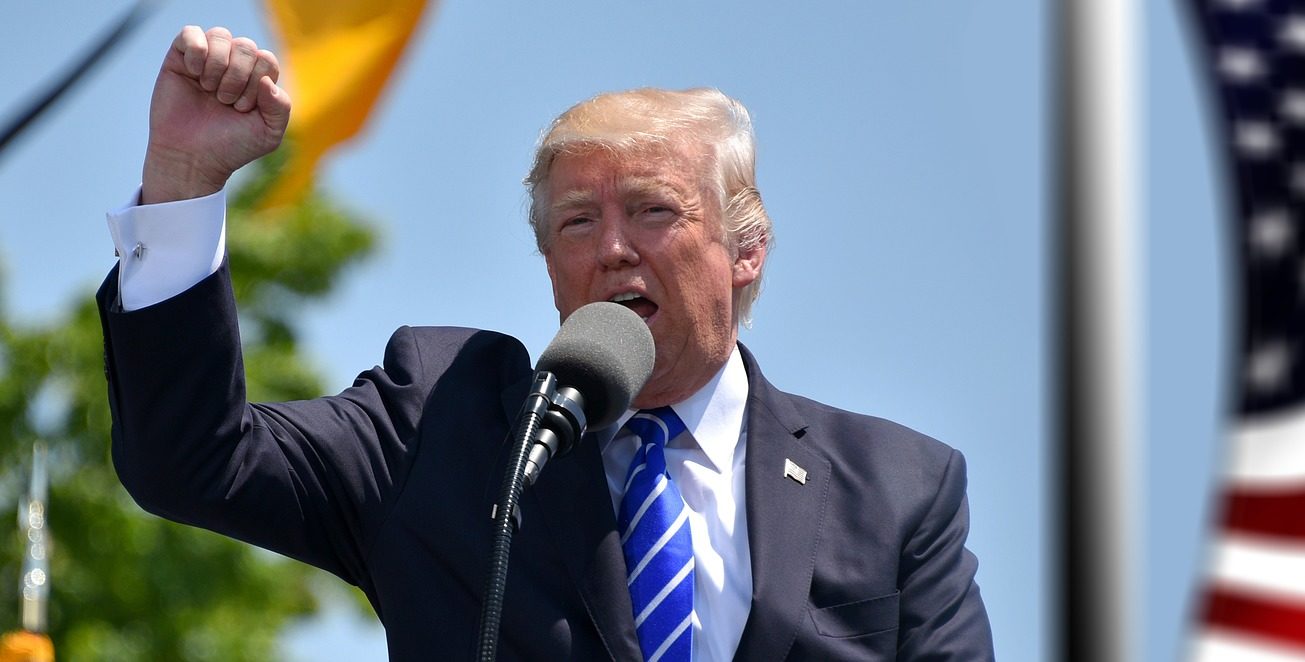This week President Trump announced his plans to pull out of the momentous Intermediate-Range Nuclear Forces (INF) treaty. First of all, what does that mean and why is it even significant? Essentially, the INF was a pact made between the USSR and the USA in 1987 signed by the respective Presidents at the time Mikhail Gorbachev and Ronald Reagan. This was as a result of nuclear tensions escalating during the 1980s and in the treaty said countries pledged not to develop, deploy, or maintain certain types of nuclear weapons. Hence, Trump’s desire to withdraw from the agreement is both puzzling and dangerous for multiple reasons.
Firstly, it would lead to a nuclear arms race between two of the most powerful countries in the world in terms of military strength. In fact, the USA spent $610 billion in 2017 on its military according to the Stockholm International Peace Research Institute. This is more than the next seven highest spending countries combined to put it into perspective. Bear in mind, this is also the same country that doesn’t have a public healthcare system yet can still afford to spend this obscene amount of money on the military. A military that includes weaponry capable of causing widespread nuclear devastation if they were ever deployed in a potential WWIII, made all the more likely if Trump does follow through with this decision.
Meanwhile, Russia’s spending has fallen in recent years due to economic strains in the country (they spent $66.3 billion in 2017, a 20% decrease from 2016). This may be a good thing, as having less military expenditure inevitably means that Russia would be forced to develop nuclear weapons at a slower rate. However, Trump’s statement to withdraw from the agreement may prompt Putin to throw more money at the military by way of retaliation to the USA leaving, resulting in further increased international tensions.
It could be argued that Trump’s withdrawal from the INF is a smart move, given that Russia has been violating the terms of the treaty since 2014, with Moscow all but openly deploying a prohibited land-based cruise missile referred to as the SSC-8. Even as far back as 2007, Putin stated that the treaty no longer served Russia’s interest. Therefore, Trump’s withdrawal could be viewed as a protective stance seeing as Russia is not wholly abiding by the pact. Although I for one struggle to understand how leaving a weaponry disarmament agreement would promote stability as surely this can only have the effect of antagonizing Russia and other countries with powerful militaries who also have tenuous relations with the USA.
In fact, the only ‘positive’ impact Trump’s plan to pull out can possibly have is Trump proving to Russia, but more so to his own ego, that he is powerful. Unfortunately, though, Trump doesn’t actually seem to consider the repercussions of his actions – which, let’s face it, is a theme which has characterized his whole presidency. To give but a few of many, many examples, he pulled out of the landmark global Paris 2030 climate change agreement claiming the decision would “reassert American sovereignty”, he has openly criticised the UN by describing it as a “club for people to get together and have a good time”, and let’s not forget the time he attacked Kim Jong Un on Twitter by saying that his “big red nuclear button” was bigger.
At a time when global tensions are becoming more and more evident, Trump’s controversial power plays are the antithesis of what the world needs to ensure international stability. Hence, his decision to leave the INF treaty can only spell trouble.
Michael Turnbull

